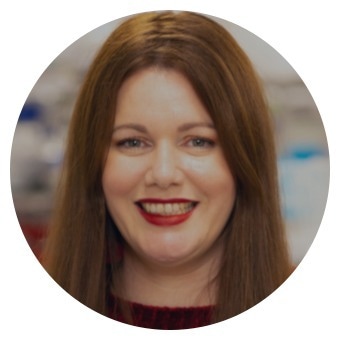To commemorate World Cancer Day, we spoke to a multidisciplinary team of researchers from The Institute of Cancer Therapeutics (ICT) based at the University of Bradford about their work in cancer research.
Please can you introduce yourself and tell us about your professional background and current position at the ICT?
I am an Associate Professor in Cancer Biology at the Institute of Cancer Therapeutics, University of Bradford. I focus on the in vitro and in vivo screening of novel therapeutics. My main research interests are drug resistance in colorectal cancer and applying the 3Rs to simple, non-invasive imaging techniques.
My career has mainly been in the preclinical cancer pharmacology and cancer biology areas. I obtained a Ph.D. from University College London on osteosarcoma biology following chemotherapy and then subsequently held postdoctoral positions at Cardiff University, University of Bath, and University of Otago, where I investigated respectively osteosarcoma biology, homeobox gene regulation and expression, and the characterization of a novel reticuloplasmin.
I subsequently worked in a start-up biotechnology company, Gendel Ltd, in Coleraine, researching a novel dr ug delivery technology. I then moved to the Institute of Cancer Therapeutics (then known as the Cancer Research Unit) at the University of Bradford, where I have been for 22 years in various positions. - Dr Steve Shnyder
ug delivery technology. I then moved to the Institute of Cancer Therapeutics (then known as the Cancer Research Unit) at the University of Bradford, where I have been for 22 years in various positions. - Dr Steve Shnyder
My name is Hannah, and I joined the ICT 3 years ago. My cancer research career started with an undergraduate dissertation project. After my undergraduate project, I was keen to develop my research skills, so I started looking for Ph.D. positions. Luckily, a particularly interesting project was being advertised at Hull York Medical School under the supervision of Dr. Stephen Maher and Prof Michael Lind. The project focused on the role of microRNA in malignant pleural mesothelioma (asbestos-related cancer) resistance to chemotherapy. We uncovered the ability of mesothelioma cells to effectively hide chemotherapy away from target areas and maintain resistance to therapeutics.
I owe much of my passion for research to my supervisors, particularly Dr. Maher, who developed my academic potential and is an outstanding mentor. After completing three postdoctoral positions, I decided to make the leap to set up my own lab by applying for the position of lecturer at the ICT, University of Bradford.
In my current role at the ICT, I am the principal investigator of a small group of Ph.D./MSc students. My lab is focused on mesothelioma biology and understanding why this disease is so resistant to treatment, mainly through exploring the function of the transportome. - Dr Hannah Moody
of Ph.D./MSc students. My lab is focused on mesothelioma biology and understanding why this disease is so resistant to treatment, mainly through exploring the function of the transportome. - Dr Hannah Moody

I began my journey in science at the University of Havana, where I obtained my degree in Biochemistry. Then I completed my Ph.D. in Advanced Materials and Nanotechnology at the Autonomous University of Madrid. I have been working in the field of nanomedicines for drug delivery at different universities, the University of East Anglia, the University of Strasbourg, Queen’s University Belfast, and now, at the Institute of Cancer Therapeutics (ICT) at the University of Bradford. Currently, I’m leading the group on Drug Delivery at the ICT, and I’m also a lecturer in Biochemistry and Pharmacology at the School of Pharmacy. - Dr Amalia Ruiz 
How have you seen the field of cancer therapeutics change throughout your career?
It has changed significantly from reliance on cytotoxic ‘DNA-bashing’ compounds to the sophisticated targeted therapeutics we have today. - Dr Steve Shnyder
In the area of drug delivery, where I conduct my research, things have significantly changed in the last 15 years. In the early 2000s, there was a major hype for applied nanotechnology in medicine. Drug delivery systems were seen as “magic nanoparticles” targeting the tumor and sparing the healthy organs.
This boom, and the commercial successes of the first nanoparticle products, stimulated nanoparticle product developments in the industry. However, I have seen the field evolve over the years, and in my opinion, there are now two types of nanoparticles: commercially approved nanoparticles versus “academic” nanoparticles. Sadly, the speed of clinical drug development is generally slow, and the process is associated with a high attrition rate.
Right now, we are observing a slowdown in the field of cancer drug delivery. I think we are in a moment of reflection, learning from the experience of the few “nanodrugs” that have been successful, seriously considering the challenges that pre-clinical and clinical trials have demonstrated in the last years, and thinking about how we can help better the patients. - Dr Amalia Ruiz
What has been the most significant breakthrough in cancer therapeutics in recent years?
The realization that harnessing the involvement of the tumor microenvironment is key to controlling tumor growth. - Dr Steve Shnyder
Scientists are investigating genetic and molecular characteristics of cancer tumors in individual patients, and the possibility of CRISPR gene editing opens fantastic opportunities for editing cells within the next decade. We are also seeing artificial intelligence (AI) and machine learning transforming cancer care. - Dr Amelia Ruiz
What is the most pressing challenge in cancer therapeutics, and how is that challenge being overcome?
Acquired drug resistance – better knowledge of resistance-causing factors and the ability to screen patients for susceptibility to resistance (and hence use of alternative therapy options) will hopefully reduce the incidence. - Dr Steve Shnyder

Image Credit: Gorodenkoff/Shutterstock.com
The physicochemical characteristics of nanoparticles remarkably influence their pharmacological and safety profiles. Very subtle changes in composition and small deviations in the final manufactured products result in significant changes in their therapeutic efficacy and toxicity profile. Control and reproducibility batch-to-batch and standardization of the techniques to characterize their properties are key elements that scientists need to have under control if we want a safe translation of novel nanosystems into commercially viable medical products in the clinic. - Dr Amalia Ruiz
The theme for World Cancer Day 2023 is #CloseTheCareGap, which started in 2022 and will end in 2024. This year is all about uniting our voices and taking action. How do you believe both the research community and the general public can support cancer research and patients?
As researchers, we need to listen to cancer patients more about their needs so that we can adjust plans for novel treatments accordingly in line with this. As members of the general public, we need to put more pressure on our elected representatives to improve health services so that unnecessary suffering due to avoidable delays in treatment and care becomes a thing of the past. - Dr Steve Shnyder
I believe the research community needs to work closely with patients and their families for better outcomes in cancer research. I am a passionate advocate for the patient and public involvement in research, and I feel this needs more emphasis than previously given. Only by truly involving patients in our research design, methods, outcomes, and dissemination can we better improve patients’ lives.
Our work as cancer researchers can sometimes seem far from meaningful interventions. However, every piece of new research delves a little deeper into understanding how this complex group of diseases can be exploited so we can better treat cancer and even prevent it from occurring in the first place. - Dr Hannah Moody

Image Credit: SewCream/Shutterstock.com
At the ICT, we focus our research on developing new cancer treatments. However, as we can't work isolated in the lab, we are trying to connect with the public differently. There are three stages that are very important for us. The first one is identifying what the priority topics for our research are. Meeting with patients, carer groups, and members of the public is key in this process so we can design our research to attend to their needs. The second stage is the preparation of the study. Many of the funding bodies have a panel that mixes scientists and members of the public
The third stage that is also very important for us is disseminating our results. Sharing our results shouldn't be only via a scientific article publication. We need to get in touch with patients, carers, and doctors to raise awareness, orientate, and give better support to the people that can benefit from these treatments.
We are working in many events where researchers and members of the public can come together, be curious, and chat about research in a relaxed environment outside of mysterious laboratories or daunting dark lecture theatres. For example, aligned with the celebration of World Cancer Day, we will be celebrating the FROLIC Festival: (FROLIC=Fun day Related tO Learning about the Institute of Cancer Therapeutics), and it will take place in The Broadway shopping center in Bradford, on Saturday 4th of February, from 10.00am to 13.00pm.
Since we are in the university environment, we also have an educational focus. At the University of Bradford School of Pharmacy, we teach different modules where we invite patients to get in touch with our students to enrich their professional training. We also make a significant effort to train our students to reflect on their community's demographic and cultural characteristics to improve their engagement with the patients. We embed, Equality, Diversity, and Inclusion in all our programs to address bias problems in patient care. - Dr Amalia Ruiz
What is next for you and your research?
To continue investigating novel mechanisms of drug resistance in colorectal cancer. -Dr Steve Shnyder
My group is working on the potential repurposing of several drugs for mesothelioma treatment and modifying the chemical structures of certain molecules to improve drug efficacy in collaboration with my fantastic colleague Dr. Deborah Crawford. Moving forward, we hope to expand the group and collaborate with international colleagues on other thoracic cancer-focused projects. - Dr Hannah Moody
The Royal Society is currently funding interesting research into developing thermosensitive liposomes for combinatory therapy in prostate cancer treatment. There is an urgent need to overcome the problems with chemotherapeutics’ systemic toxicity in cancer treatment. This project aims to prepare a formulation that can be activated using a Near Infrared laser and release the drug at the tumor site. - Dr Amalia Ruiz
Where can readers find more information?
- On the Institute of Cancer Therapeutics website: www.brad.ac.uk/ict/
- On twitter:
- @Hannah_L_Moody
- @Amyruizestrada